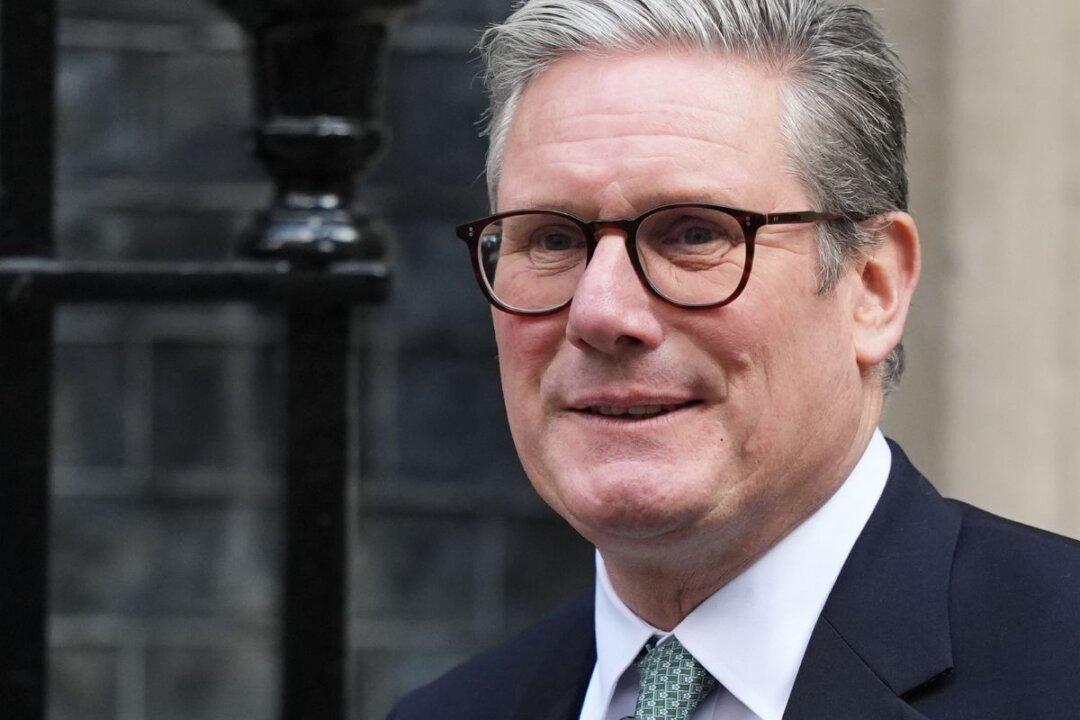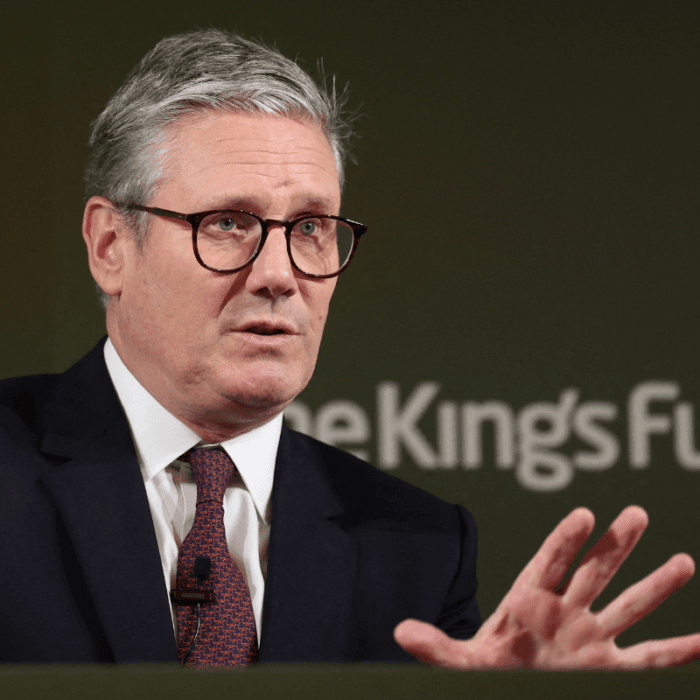Prime Minister Sir Keir Starmer confirmed that there was no impact assessment conducted for cutting winter fuel support payments for millions of elderly people.
The Conservatives have been pressuring the new Labour government to publish an impact assessment for the plan to end universal access to the Winter Fuel Payments, which would bring down the number of recipients from around 10.8 million last winter to 1.5 million this year.
Pressed on whether an impact assessment would be published, Starmer said, “There isn’t a report on my desk which somehow we’re not showing, that I’m not showing, as simple as that.”
The prime minister told reporters on Thursday travelling with him to Washington that the government was not legally required to produce one.
A Downing Street spokeswoman said that the government follows clear rules on policy changes through secondary legislation, and that “departments are required to make regulatory impact assessments if the cost of the legislation exceeds £10 million and so an assessment was therefore not required for the change to winter fuel eligibility.”
She said, “The government will be ensuring that those who are most vulnerable and should be receiving support are receiving it, and that’s why there is a huge effort to try and convert people onto pension credit.”
“We’ve had to take that tough decision to rebalance the books, given the state of the public finances,” she added.
Conservatives Lose Challenge
On Monday, Starmer said he stood by his decision to introduce the plans, saying the cuts would provide extra funds needed for the new Labour government to fulfil its election pledges to improve public services and deal with crime and immigration.“We can’t bring about that change if we don’t fix the fundamentals and stabilise our economy,” the prime minister said.
The plans were unpopular with both the Conservatives and other parties traditionally on the left, including the Liberal Democrats. But the measures also saw some dissent from within Labour.
A Conservative motion to block the plans was defeated in the House of Commons on Tuesday—348 to 228 against. A total of 52 Labour MPs had no vote recorded, and while that does not automatically mean they were all abstentions—many may have been given permission to miss the vote—Rosie Duffield was one Labour MP who abstained to voice her opposition to the measures.
Last weekend, the Canterbury MP confirmed that she would be abstaining, rather than voting against her party.
“This government has made it very clear that Labour MPs who vote against this new government will be punished and have the whip removed,” Duffield said, adding that she would instead abstain and that she knew of a few colleagues who would be doing the same.
Just one Labour MP—Jon Trickett—rebelled and voted with the Conservatives, because he said he could not vote to make his own constituents in Normanton and Hemsworth poorer.

‘Reckless and Wrong’
Charity Age UK has criticised the decision to cut the winter fuel allowance, describing it as “reckless and wrong,” saying the decision came with “virtually no notice and no compensatory measures to protect poor and vulnerable pensioners.”Sir Steve Webb, the former pensions minister and partner at LCP, said that it could be that these people, while eligible, are simply not claiming it, with the DWP estimating there could be around 800,000 pensioners in this position. Another possible reason could be that while these seniors may have enough money to cover the basic costs of living, such as energy bills and food, they also might have other costs like mortgages and rent, which if being paid out of their core income could be pushing them below the poverty line.
Webb warned that “limiting payments only to those on pension credit will leave the vast majority of pensioners below the poverty line losing out.”
The government has been urging pensioners eligible for Pension Credit to apply—as it would automatically entitle them to the Winter Fuel Payments—as well as apply for wider support available to them.







